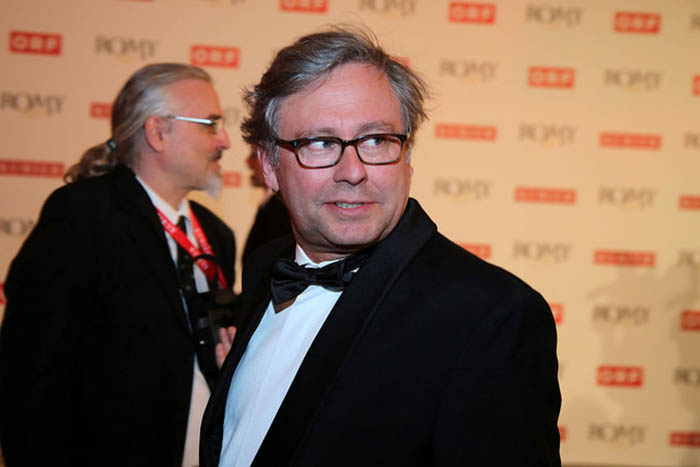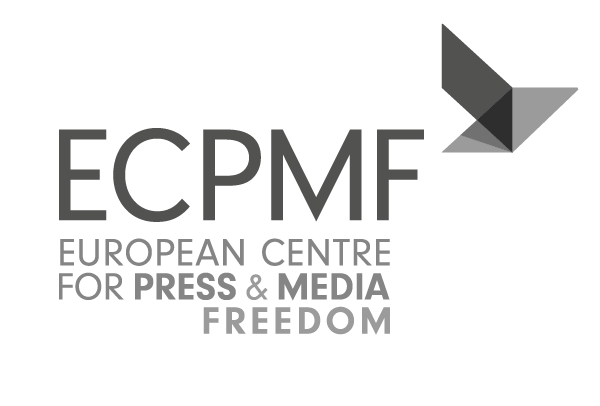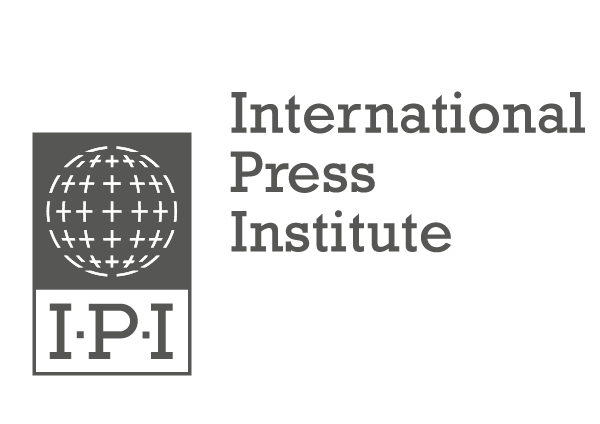 ORF managing director Alexander Wrabetz. Credit: Franz Johann Morgenbesser
ORF managing director Alexander Wrabetz. Credit: Franz Johann Morgenbesser
A month prior to his election as head of the Austrian Broadcasting Corporation (ORF) board of trustees in May 2018, Norbert Steger gave an interview to the daily conservative newspaper Salzburger Nachrichten, voicing his concern about the “objectivity” of the broadcaster and announcing his intention to “cut a third of foreign correspondents, should they not report correctly”.
Steger highlighted the coverage of the Hungarian elections as being particularly problematic, criticising the reports of Ernst Gelegs, ORF’s Hungary correspondent who criticised the human rights situation in the country, including the restrictions media freedom, as being “one-sided”. Steger also called for the dismissal of journalists who violate the broadcaster’s guidelines for ORF journalists.
Despite his criticism of the ORF, Steger’s election is hardly surprising given political nature of how positions are assigned: 24 of the board’s 35 members are directly appointed by Austria’s federal and state governments and political parties. An additional six are indirectly appointed by the Federal Chancellor.
When the Social Democratic Party of Austria lost to the populist-conservative Austrian People’s Party (ÖVP) and its far-right coalition partner FPÖ in October 2017, it became clear that Heinz Lederer, former head of the ORF board of trustees and a Social Democrat, would need to make room for a representative of the ruling parties. In the end, the government’s decision was made by Steger, a former FPÖ politician.
Responding to Steger’s comments that journalists cannot be “overly sensitive”, ORF journalist Stefan Kappacher, in his widely-shared acceptance speech for the country’s most prestigious journalism award, said: “As ORF journalists we are grateful to be able to produce independent journalism and we will continue to fight for this independence.”
This independence is in jeopardy. Steger’s election puts ORF managing director Alexander Wrabetz under particular pressure as his position is elected by the board by a simple majority and can vote him out of office with a two-thirds majority. Wrabetz, a Social Democrat and the first person to be elected to this position three times in a row, has survived four national elections. Bernhard Baumgartner, a journalist for the daily newspaper Wiener Zeitung, assumes that the board of trustees will not vote Wrabetz out in order to avoid a public outcry, but rather change the governance structure by law, for example, by replacing the managing director with a management board. According to the weekly magazine Profil, ÖVP and FPÖ agreed that Steger will push for a new ORF law and effectively hand the position over to the ÖVP.
The government plans an extensive reform of ORF. The government programme includes a “re-definition of the mandate of the public media” as well as “structural and financial reforms”, as Index on Censorship reported earlier this year. This also entails the replacement of the ORF public tax, its primary source of financing, which currently guarantees accountability to the public, serving as the most important guarantee of the broadcaster’s ability to maintain its watchdog function in society. “Financing public service broadcasting via the public budget” instead of direct public tax would “set the wrong incentives” and would make the ORF “vulnerable”, Austria’s president Van der Bellen warned. Kappacher predicts even more drastic consequences: “The allocation of political funding would then be based on the reporting behaviour of ORF journalists.”
This concern is widely shared by other journalists and NGOs. Udo Bachmair, a former ORF journalist and president of the Vereinigung für Medienkultur (Association for Media Culture), tells Index on Censorship that he considers the public tax indispensable and that its replacement risks making the ORF completely dependent on the government. “The replacement of objective reporting with conformity as we’ve seen in Hungary and Poland would be a logical consequence,” he says. “The ORF’s political independence is a key element to democracy in Austria. Together with other quality print media, it guarantees independent, high-quality journalism.”
Bachmair adds that as Austria has a particularly high concentration of tabloids, which have been promoting right-wing populist tendencies for many years, “it is even more important that the ORF fulfils its mission to inform the public and hold against the tendency to paint black and white pictures and promote hatred on the internet”.
The recent spate of direct attacks on the ORF and its journalists by representatives of the FPÖ causes ORF journalists to feel under increasing pressure, Bachmair says. “This reminds me of the first ÖVP-FPÖ coalition in Austria between 2000 and 2006, where an increasing number of TV broadcasting journalists complained about attempts of political intervention. However, the scale reached now is unprecedented.”
For now, it is not within the competence of the board of trustees to make management decisions. Wrabetz made this clear in his reaction to Stegers attempt to put the ORF and its foreign correspondents in line as he pushed back on Twitter and announced an extension of Gelegs’ contract, due to this “excellent reports”. Wrabetz also voiced his intention to further strengthen foreign correspondents and to expand by two more offices by 2020.
Steger did not apologise for his statements in the interview but told the left-wing daily newspaper Der Standard that he “misses the full explanation behind his statement”, insinuating that his statement was reported out of context. “It is not acceptable to have privileged, well-paid people [at the ORF] who think that differentiating between reports and opinion does not apply to them,” he said. “ORF foreign correspondents currently produce opinion rather than reports, which I strongly oppose.” It is the ORF managing-director who would need to intervene against “violations of objective reporting”. Wrabetz has not taken appropriate actions, according to Steger.
For now, ORF journalists such as Wrabetz and anchorman Armin Wolf push against these changes as much as possible, but support from the top slowly fades. In their last session in March 2018, the ORF Viewers’ and Listeners’ Council adopted a resolution. It states: “The ORF Viewers’ and Listeners’ Council strongly rejects the current attacks of a ruling party on public service broadcasting including ORF staff and the intention to abolish the ORF public tax.”
The Council also warned of any attempt to undermine press freedom, naming intimidation attempts against the media and in particular against ORF journalists as an example. On 3 May 2018 however, the Council’s latest elections took place and chancellor Sebastian Kurz replaced the majority of SPÖ members by affiliates of his own party, subjecting another body of the ORF’s top level entirely to the government’s will.
Increasingly, civil society organisations are speaking out against the government’s attempts to weaken the ORF’s independence. Several artists, media experts, publicists and writers founded the platform We, for the ORF. Its self-declared aim is “to fight against the ORF’s political absorption”. As the government’s long-promised media symposium took place on 6 and 7 June 2018, which should serve as the basis for an ORF reform, We, for the ORF organised a protest a day earlier called The Better Media Symposium, which garnered the support of over 40 organisations.
Bachmair, a member of the platform, tells Index: “While the platform’s public appearance in the media is limited, it is an important voice, which it will use to monitor and report on the media developments of the upcoming months. Moreover, the platform will fight for the future independence of the ORF and, in a broader sense, for media freedom and a media landscape characterised by plurality, diversity and critical, high-quality journalism.”





